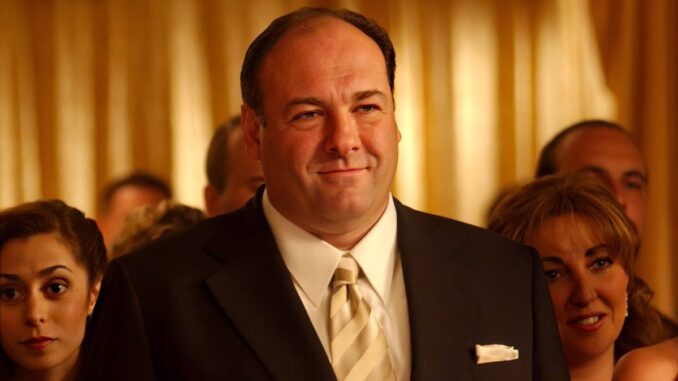
James Gandolfini was more than just an actor; he was a force of nature. Best known for his iconic role as Tony Soprano in The Sopranos, Gandolfini captivated audiences with his raw emotional depth and authenticity. But what was the secret behind his incredible performances? One key element was his use of the Meisner Technique—a method that allowed him to channel his anger and emotions in a way that felt real and relatable. Let’s dive deeper into how this technique shaped Gandolfini’s craft and contributed to his legendary status.
Understanding the Meisner Technique
What Is the Meisner Technique?
The Meisner Technique, developed by Sanford Meisner, is a form of acting training that emphasizes emotional truth and spontaneity. Unlike some traditional methods that focus on introspection and personal experiences, Meisner encourages actors to live truthfully under imaginary circumstances. This means responding to what’s happening in the moment rather than relying on pre-planned emotions.
The core principle revolves around “getting out of your head.” Instead of overthinking a scene, actors learn to engage deeply with their scene partners, listening and reacting in real time. This responsiveness helps to create more dynamic and believable performances.
How Gandolfini Embraced Meisner
James Gandolfini was known for his ability to tap into a wide range of emotions, especially anger. By employing the Meisner Technique, he was able to explore this anger constructively. He didn’t just shout or get mad for effect; he found the underlying reasons for that anger, allowing it to inform his character in a nuanced way.
For Gandolfini, anger was not just a surface emotion but a complex, layered experience. The Meisner Technique helped him access those layers, leading to performances that resonated deeply with audiences. He wasn’t just acting; he was living truthfully as Tony Soprano, a character grappling with inner demons and external pressures.
The Impact of Emotional Truth in Acting
Why Emotional Truth Matters
Emotional truth is crucial in acting because it allows audiences to connect with the character on a deeper level. When an actor conveys genuine feelings, it transcends the screen, making viewers feel as though they are part of the story. Gandolfini’s portrayal of Tony Soprano was rife with emotional truth—his struggles with identity, family, and the moral ambiguity of his life made him relatable despite his criminal background.
Channeling Anger Effectively
Anger can be a tricky emotion for actors to portray. If overdone, it can come off as melodramatic, but if underplayed, it can seem insincere. Gandolfini navigated this fine line with finesse. Through the Meisner Technique, he was able to channel his anger in a way that felt both powerful and authentic.
Instead of simply reacting with rage, he would often let his anger simmer just below the surface, allowing tension to build. This technique created a palpable sense of unease, drawing viewers into the complexity of his character. Whether he was screaming at his therapist or having a quiet but heated confrontation with a family member, Gandolfini’s anger was always grounded in truth.
The Process of Practicing the Meisner Technique
Exercises to Explore Anger
The Meisner Technique includes various exercises designed to help actors connect with their emotions. For instance, one common exercise involves repetition—two actors stand facing each other and repeat a phrase back and forth. This seemingly simple task helps actors stay present and responsive, fostering a genuine connection.
For Gandolfini, these exercises were not just training; they were essential tools that allowed him to understand his emotional landscape. By practicing these techniques, he honed his ability to access and express anger authentically.
Creating a Safe Space for Vulnerability
One of the most significant aspects of the Meisner Technique is the emphasis on creating a safe environment for actors. Vulnerability is key to great acting, and Gandolfini’s willingness to expose his emotional depths was crucial in his performances. In a supportive setting, he could explore uncomfortable feelings like anger without fear of judgment.
This sense of safety enabled Gandolfini to take risks in his performances, leading to moments that were not only impactful but also genuine. When he lashed out or broke down, it felt earned and real, not just for shock value.
Gandolfini’s Legacy and Influence
A New Standard for Television Acting
James Gandolfini’s impact on television acting cannot be overstated. His portrayal of Tony Soprano set a new standard for depth and complexity in TV characters. He showed that leading roles could be flawed, complicated, and deeply human, which paved the way for a new wave of antiheroes in series like Breaking Bad and Mad Men.
Inspiring Future Generations
Gandolfini’s commitment to authenticity has inspired countless actors to pursue the same level of emotional truth in their work. His legacy lives on not just in his performances but in the techniques he championed. Aspiring actors often turn to the Meisner Technique to help them tap into their emotional depths, just as Gandolfini did.
By sharing his journey through anger and vulnerability, Gandolfini left behind a treasure trove of lessons for actors who wish to connect with their characters—and audiences—on a deeper level.
Conclusion: The Lasting Impact of James Gandolfini
James Gandolfini was a master of his craft, and his secret weapon was the Meisner Technique. By focusing his anger and embracing emotional truth, he created performances that resonated with audiences around the world. His legacy is a testament to the power of authenticity in acting, proving that when an actor is willing to be vulnerable, the results can be truly transformative.
Through Gandolfini’s journey, we learn that tapping into our emotions, even the most intense ones, can lead to profound artistic expression. So, whether you’re an aspiring actor or simply a fan of great performances, take a page out of Gandolfini’s book: embrace your emotions, focus your anger, and let the truth guide your work.
